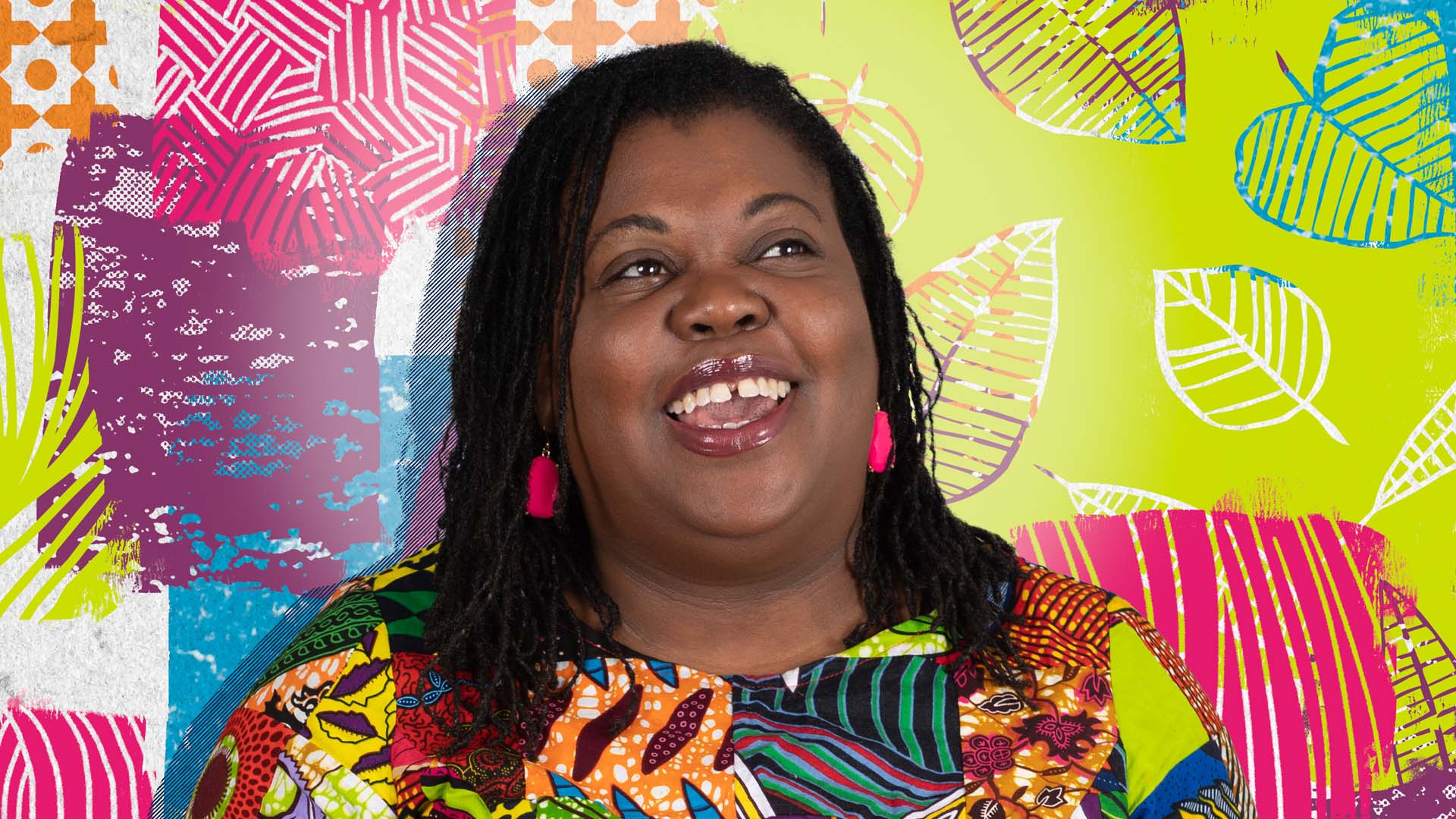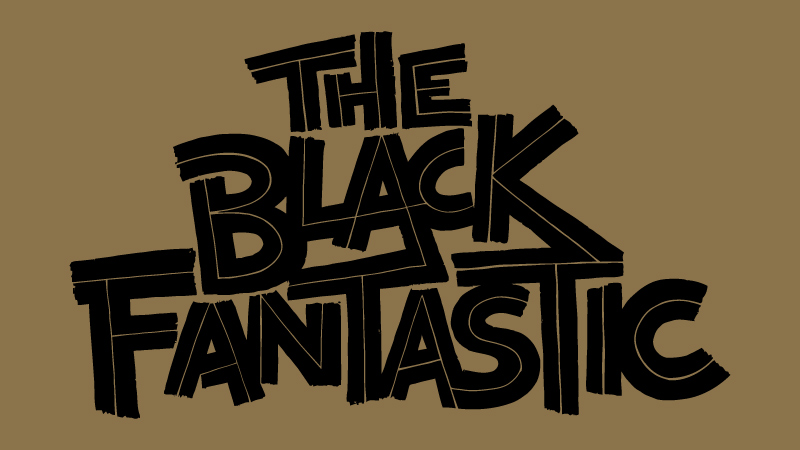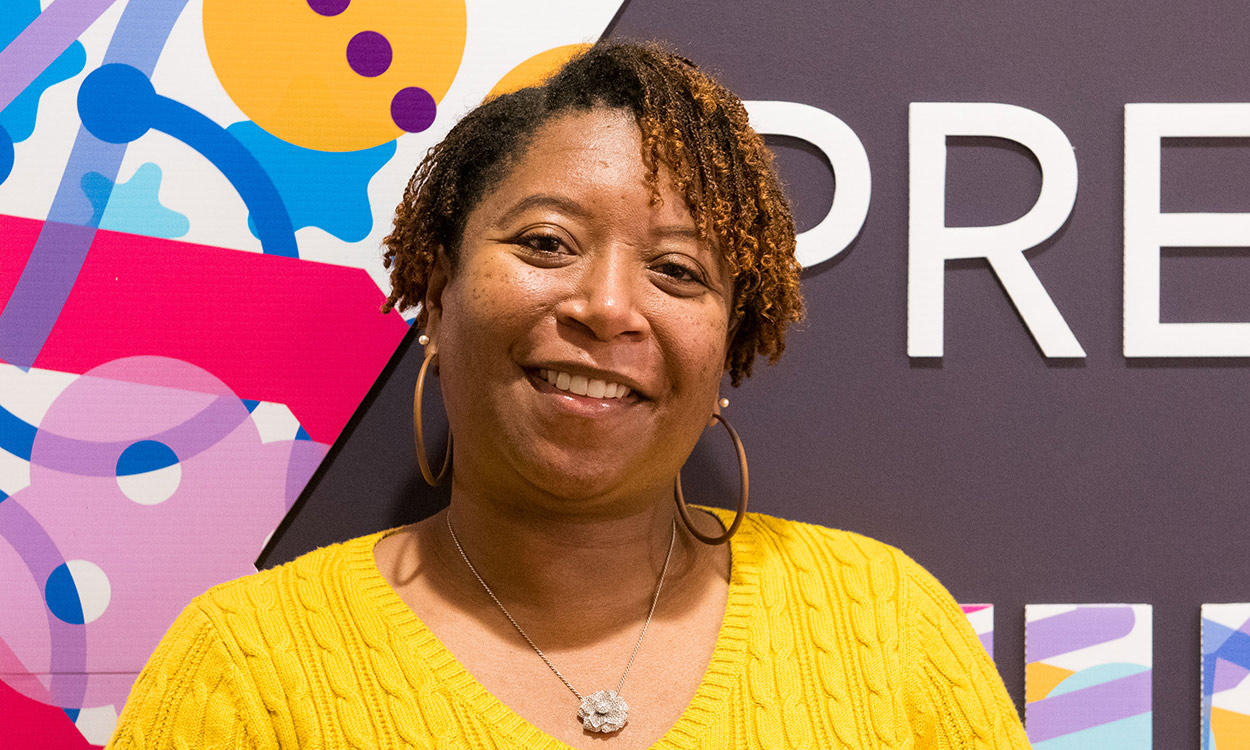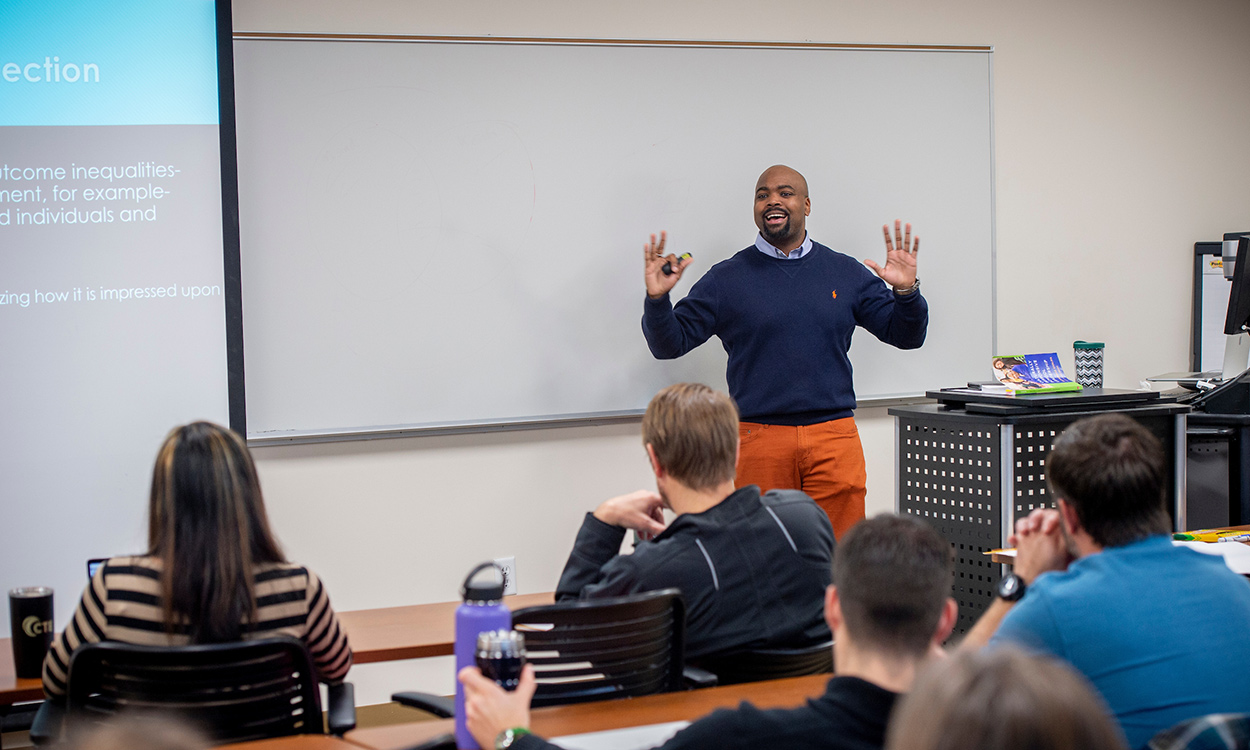


“The Black Fantastic” is a project the University Communications and Marketing team
created as a means to highlight excellence among a few of WCU’s Black faculty and
staff members. As we celebrate Black History Month, this is an artistic and creative
look at some of the people who are helping to shape and mentor the great minds of
the future. In their own words, each was asked to respond to the phrase, “I am proud
of my success because …” The title “The Black Fantastic” was chosen by the participants
and stems from Richard Iton’s book, “In Search of the Black Fantastic: Politics and
Popular Culture in the Post-Civil Rights Era.”
As Munene Mwaniki, WCU associate professor in the Department of Anthropology and Sociology,
explains, “The book broadly discusses the contemporary and lingering political problems
facing Black America since the landmark Civil Rights legislation in the 1960s. Though
still widely heralded, the Civil Rights era did not result in a restructuring of American
politics, rather it found that the foundational aspects of U.S. politics had certain,
if flexible, limits towards social change. In the decades that followed, Black entrance
into the political sphere not only failed in many respects, but also led to a number
of compromises that constrained Black political thought and attempted to separate
Black political thought from its long relationship with Black popular culture. For
Iton, the Black Fantastic represents a challenge, a destabilizing force, to the status
quo that seeks to limit and constrain Black creativity and politics. It is a pushing
of boundaries, a grasping and claiming of space, beyond those limits that only appear
to be concrete in order to create something new, something human. The Black Fantastic
here, then, should be seen as unconventional, with sense towards ignored or underdeveloped
possibilities for those considered Black in the U.S. and throughout the Black diaspora.”
Brandi Hinnant-Crawford - Associate Professor in Educational Leadership

As a scholar of improvement, I am always interested in operational definitions. How
do you operationalize success? Is it degrees accumulated? I have four. Books published?
I have five. Dollars earned? Not that many. Houses purchased? Not one. Student loan
debt amassed? A whole heap! By some metrics, some would say that I, Brandi Hinnant-Crawford,
am quite successful. By others not so much.
I am Black, hooded (PhD), published and tenured – and I have a customized t-shirt
that says just that. Yet, I would not say I am successful, as I believe I am just
getting started (and I have a long way to go). I operationalize success as more of
a journey than a destination. My success is the amalgamation of those who enable me
to make the journey. Therefore, my success is not my own. It is not mine to be proud of.
My success is the wisdom of Willie Jones, my great grandfather who was the son of
enslaved Africans, telling my grandma – who later told me – "get yourself some education,
can’t nobody take that from you.” My success is the high expectations of my grandmother,
Evangeline, making me rewrite my homework if it was messy and making me learn the
13 times tables, despite me telling her I was only required to learn the 12s. My success
is the dedication of my mother, Rose, proofreading every paper I ever wrote throughout
my academic career at Goldsboro High School, NC State, Brown, and Emory – and even
articles I publish. My success is the fertile ground in Greenleaf Christian Church,
growing up hearing Bishop William J. Barber II preaching to me that good can come
out of Nazareth (or in my case Goldsboro) and that in all we do we must consider the
least of these.
My success is community standing in the gap – so I can be a mother scholar – while
also being a single mother. My success is Elizabeth Freedom and Elijah Justice and
the grace they extend to an over-extended mother. My success is girlfriends and sorors
who will hold up a mirror and tell me about myself or who will play “Back that (Thang)
Up” to ensure I am not taking myself too seriously. My success is Black colleagues
turned family – Kofi, Darrius, Jack, Ricardo, Jane, Dana, Charmion and Shamella –
who allow me to show my full unapologetically Black humanity and let my hair down,
even when I am so far from home. My success is the thousands of hands that have touched
me and carried me from where I began to where I am now.
I come from a people of possibility. And to be very clear, I am not special or exceptional.
Black Genius, Black Girl Magic, Black Boy Joy and Black Excellence is rule not exception.
You do not have to search for The Black Fantastic – when you are in the presence of
Blackness you are in the presence of the fantastic.
If anything, my success makes me humble, appreciative and grateful. I am proud, but
not of me; I am proud of the fantastic community that raised and nurtured me. And
my success makes me accountable to that community. I must always work towards justice
and liberation for my community. My success comes with requirements. I cannot be content
that I have “made it” if in making it there are so many left behind. That’s why I
have committed myself to education, to ensuring equitable opportunities to learn especially
for marginalized individuals, because I understand to whom much is given, much is
required.
The old gospel song says my soul looks back and wonders how I got over, but often
I look back and can see very clearly the individuals who God used to lift me from
one level to the next. That's what I'm proud of. I recognize that when I walk in
certain spaces it is my responsibility to make my community’s interests known. The
truth is, the academy makes you feel you’re never good enough, your worth is rooted
in productivity and you are only as good as the last thing you produced. Capitalism
combined with social media make you feel you’ve never achieved enough, stacked enough,
earned enough nor possessed enough. But when I go home, when I walk back into the
community who helped me along the way, and the community says, “I'm proud of you,
girl,” that is the moment I feel successful. When I have made the way a little clearer
or less rocky for someone else to achieve their highest potential, that’s when I feel
successful. It is in these moments, I feel most proud.

